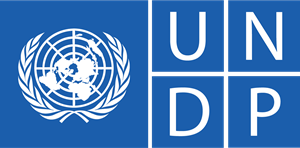KABUL (Pajhwok): The COVID-19 pandemic would not be the last crisis facing the world unless humans release their grip on nature, according to a new report launched in Kabul on Wednesday.
Launched globally yesterday by the United Nations Development Programme (UNDP) in collaboration with the government of Sweden, the launch of the report today in Kabul was also co-organized by UNDP Afghanistan and the Swedish Embassy in Kabul.
The report includes a new experimental index on human progress that takes into account countries’ carbon emissions and material footprint.
Globally, this year marks the 30th Anniversary of the first Human Development Report and the Human Development Index (HDI) launched in 1990. The HDI was developed to steer discussions about development progress extending beyond GDP towards a measure that genuinely counts the people’s capabilities as the ultimate criteria for assessing development of a country.
The report overhauls how we define and measure human development and outlines how we can use human development in the Anthropocene to change our current trajectory of mutually reinforcing planetary and social imbalances.
This is not just another sustainability report that summarizes well-known problems and policy solutions. Instead, it focuses on how we can and must successfully navigate this new geological era by expanding human development in balance with the planet.
“The Planet-Adjusted Index introduced this year fills an important gap by showcasing new and more honest ways of measuring human development,” said Ambassador of Sweden to Afghanistan Torkel Stiernlöf.
He added: “There is an urgent need to shift to a green and sustainable relationship with nature. Industrialized countries with the means for transition, like Sweden, must lead the way by building partnerships with developing countries to support their endeavors to find a path that is friendly to people and the environment.”
According to the 2020 report, Afghanistan’s HDI value for 2019 is 0.511, which put the country in the lowest human development category, positioning it at 169 out of 189 countries and territories. Between 1990 and 2019, Afghanistan’s HDI value increased from 0.302 to 0.511, an increase of 69.2 percent. Whereas, Afghanistan’s life expectancy at birth increased by 14.5 years,mean years of schooling (average number of years of education of population aged 25 and older)increased by 2.4 years and expected years of schooling increased by 7.6 years. Afghanistan’s Gross National Income per capita decreased by about 10 percent between 1990 and 2019.
Afghanistan’s 2019 HDI is below the average for countries in the ‘low human development group’ and below the average of countries in South Asia. The 2019 female HDI value for Afghanistan is 0.391 in contrast with 0.593 for males showing a significant gender gap.
“The release of Human Development Report this year coincides with the conclusion of Geneva Conference on Afghanistan and a clear commitment from international community to continue supporting the country to improve the lives of citizens” said Abdallah Al Dardari, UNDP Resident Representative for Afghanistan. “It is now upon all partners to work together with the government and people of Afghanistan on integrated programmes to help the country move up the HDI scale and towards achieving Sustainable Development Goals”
Human activity can harm nature, but it can also regenerate it. Our challenge is to create and sustain positive cycles while preventing and ending negative spirals.
The report outlines three mechanisms for collective change:
- Social norms and values: As we seek to expand agency and empower people through human development, we must also establish new norms that give greater weight to planetary balance and sustainability.
- Incentives and regulation:Incentives and regulations can be used to promote or deter action, helping bridge the gap between behaviors and values.
- Nature-based solutions: These can create a virtuous cycle between human development and planetary health by generating and supporting actions that protect, sustainably manage and restore ecosystems.
Afghanistan is blessed with rich natural resources that can be a major source of financing for socioeconomic development of the country. However, the need to balance between tapping on natural resources for development and preserving environment, and sustaining the nature is of paramount importance to ensure sustainability. UNDP is offering a comprehensive package of programmes to help the government and people of Afghanistan towards self-reliance, sustainable development and responsible use of natural resources.
Pr/ma








GET IN TOUCH
NEWSLETTER
SUGGEST A STORY
PAJHWOK MOBILE APP